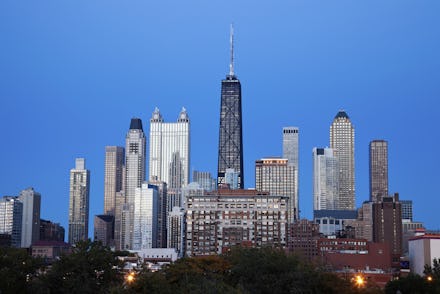Chicago Just Became the Latest City to Increase Its Minimum Wage

The wave of minimum wage hikes across major American cities continues to rise.
On Tuesday, Chicago's city council approved 44-5 an ordinance that will raise the city's minimum wage to $13 per hour by 2019.
Under the ordinance, the minimum wage will rise to $10 per hour in 2015 and increase incrementally every year until hitting the $13 wage in the middle of 2019.
Chicago Mayor Rahm Emanuel, formerly President Barack Obama's White House chief of staff, backed the plan, which he fast-tracked for a vote as he faces re-election in February.
Emanuel is a relatively centrist Democrat with a reputation for being friendly to corporate interests. Political observers see the plan as an attempt at protecting his left flank, from which he faces multiple challengers for office.
A number of advocates for the low-wage working community see the policy as a positive step but a missed opportunity in light of a national movement for a $15 minimum wage that has served as a banner for retail and food-worker strikes across the country. San Francisco and Seattle passed measures for a $15 minimum wage earlier this year.
"Thirteen dollars is a good place to start, but it does leave out huge swaths of the population — hotel workers, domestic workers, tip workers," Katelyn Johnson, director of union group rallying for a $15 wage, told the Chicago Tribune.
Some workers who receive tips can legally receive less than the minimum wage. But a higher minimum wage applies upward pressure on their wages as well.
Despite not reaching the widely sought $15 wage, the Chicago ordinance will improve the lives of hundreds of thousands of workers across the city, and ultimately represents another victory for the national campaign for higher wages.